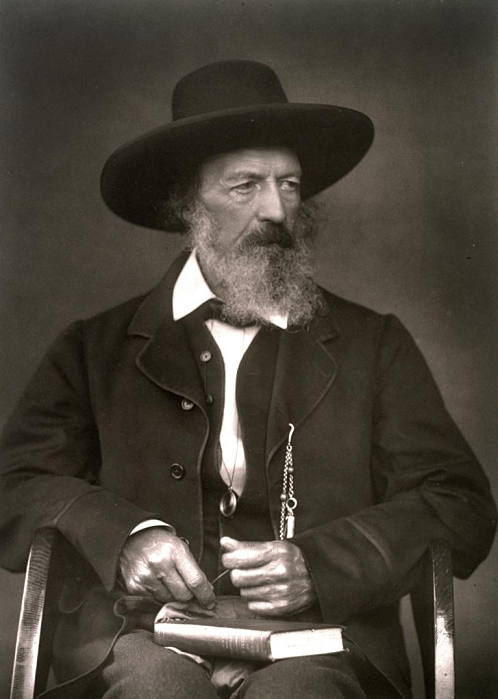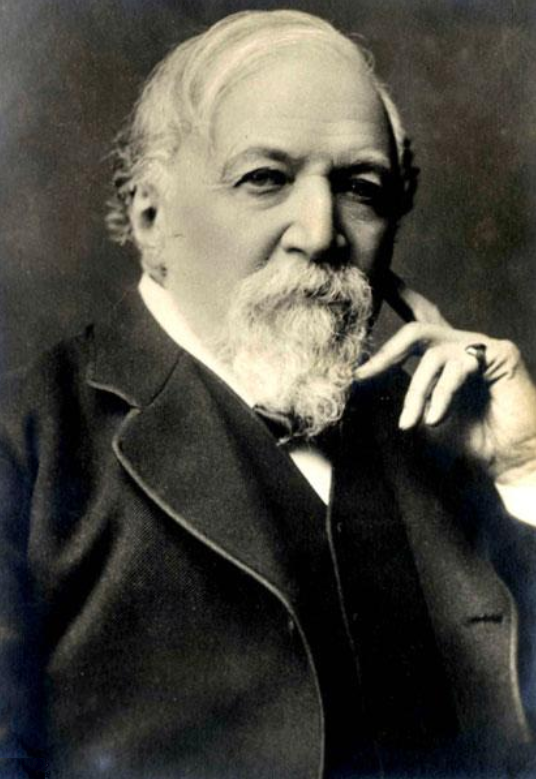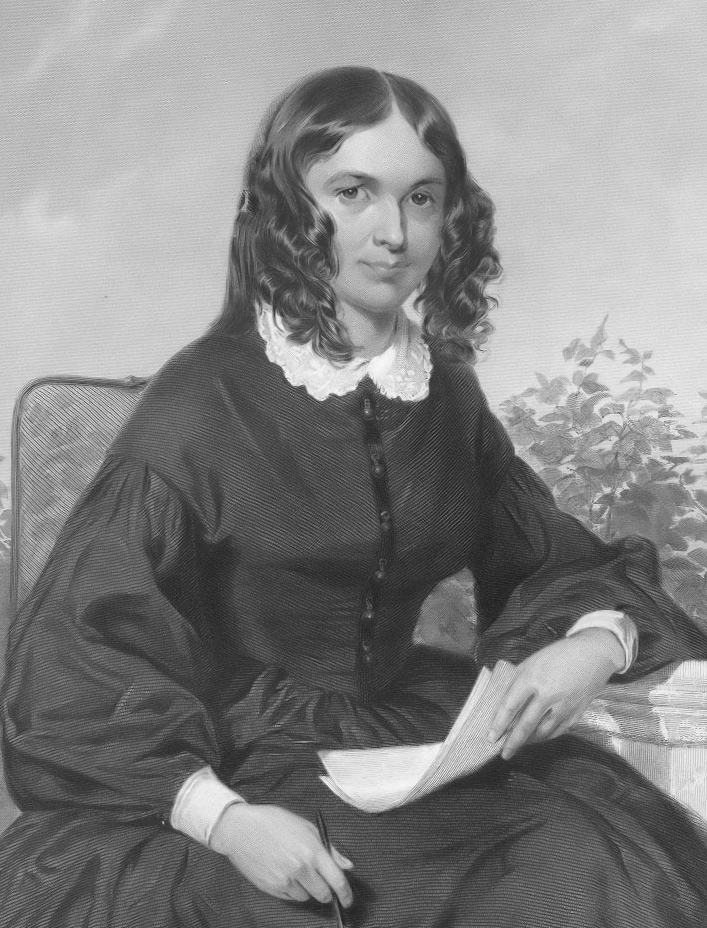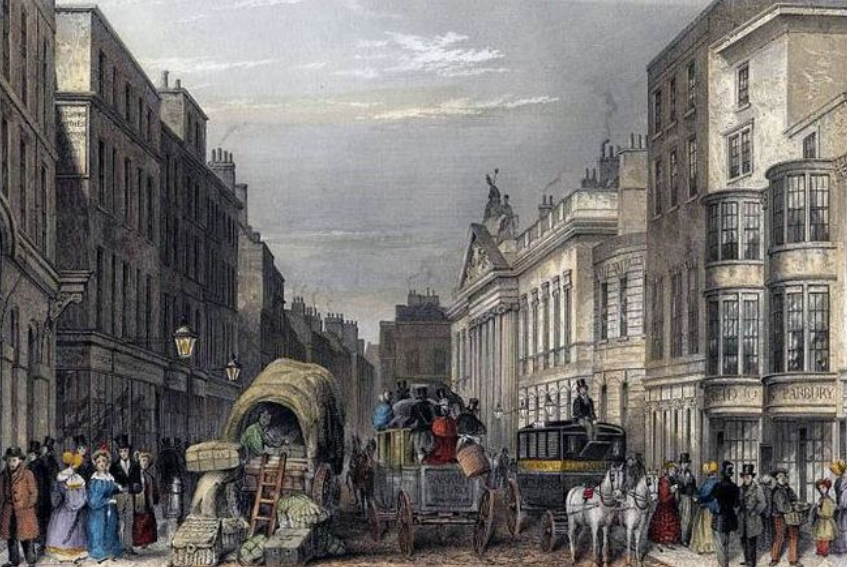Editor’s note: The following is extracted from The Victorian Age in Literature, by G. K. Chesterton (published 1913). All spelling in the original.
What was really unsatisfactory in Victorian literature is something much easier to feel than to state. It was not so much a superiority in the men of other ages to the Victorian men. It was a superiority of Victorian men to themselves. The individual was unequal. Perhaps that is why the society became unequal: I cannot say. They were lame giants; the strongest of them walked on one leg a little shorter than the other. A great man in any age must be a common man, and also an uncommon man. Those that are only uncommon men are perverts and sowers of pestilence. But somehow the great Victorian man was more and less than this. He was at once a giant and a dwarf. When he has been sweeping the sky in circles infinitely great, he suddenly shrivels into something indescribably small. There is a moment when Carlyle turns suddenly from a high creative mystic to a common Calvinist. There are moments when George Eliot turns from a prophetess into a governess. There are also moments when Ruskin turns into a governess, without even the excuse of sex. But in all these cases the alteration comes as a thing quite abrupt and unreasonable. We do not feel this acute angle anywhere in Homer or in Virgil or in Chaucer or in Shakespeare or in Dryden; such things as they knew they knew. It is no disgrace to Homer that he had not discovered Britain; or to Virgil that he had not discovered America; or to Chaucer that he had not discovered the solar system; or to Dryden that he had not discovered the steam-engine. But we do most frequently feel, with the Victorians, that the very vastness of the number of things they know illustrates the abrupt abyss of the things they do not know. We feel, in a sort of way, that it is a disgrace to a man like Carlyle when he asks the Irish why they do not bestir themselves and re-forest their country: saying not a word about the soaking up of every sort of profit by the landlords which made that and every other Irish improvement impossible. We feel that it is a disgrace to a man like Ruskin when he says, with a solemn visage, that building in iron is ugly and unreal, but that the weightiest objection is that there is no mention of it in the Bible; we feel as if he had just said he could find no hair-brushes in Habakkuk. We feel that it is a disgrace to a man like Thackeray when he proposes that people should be forcibly prevented from being nuns, merely because he has no fixed intention of becoming a nun himself. We feel that it is a disgrace to a man like Tennyson, when he talks of the French revolutions, the huge crusades that had recreated the whole of his civilisation, as being “no graver than a schoolboy’s barring out.” We feel that it is a disgrace to a man like Browning to make spluttering and spiteful puns about the names Newman, Wiseman, and Manning. We feel that it is a disgrace to a man like Newman when he confesses that for some time he felt as if he couldn’t come in to the Catholic Church, because of that dreadful Mr. Daniel O’Connell, who had the vulgarity to fight for his own country. We feel that it is a disgrace to a man like Dickens, when he makes a blind brute and savage out of a man like St. Dunstan; it sounds as if it were not Dickens talking but Dombey. We feel it is a disgrace to a man like Swinburne, when he has a Jingo fit and calls the Boer children in the concentration camps “Whelps of treacherous dams whom none save we have spared to starve and slay”: we feel that Swinburne, for the first time, really has become an immoral and indecent writer. All this is a certain odd provincialism peculiar to the English in that great century: they were in a kind of pocket; they appealed to too narrow a public opinion; I am certain that no French or German men of the same genius made such remarks. Renan was the enemy of the Catholic Church; but who can imagine Renan writing of it as Kingsley or Dickens did? Taine was the enemy of the French Revolution; but who can imagine Taine talking about it as Tennyson or Newman talked? Even Matthew Arnold, though he saw this peril and prided himself on escaping it, did not altogether escape it. There must be (to use an Irishism) something shallow in the depths of any man who talks about the Zeitgeist as if it were a living thing.

But this defect is very specially the key to the case of the two great Victorian poets, Tennyson and Browning; the two spirited or beautiful tunes, so to speak, to which the other events marched or danced. It was especially so of Tennyson, for a reason which raises some of the most real problems about his poetry. Tennyson, of course, owed a great deal to Virgil. There is no question of plagiarism here; a debt to Virgil is like a debt to Nature. But Tennyson was a provincial Virgil. In such passages as that about the schoolboy’s barring out he might be called a suburban Virgil. I mean that he tried to have the universal balance of all the ideas at which the great Roman had aimed: but he hadn’t got hold of all the ideas to balance. Hence his work was not a balance of truths, like the universe. It was a balance of whims; like the British Constitution. It is intensely typical of Tennyson’s philosophical temper that he was almost the only Poet Laureate who was not ludicrous. It is not absurd to think of Tennyson as tuning his harp in praise of Queen Victoria: that is, it is not absurd in the same sense as Chaucer’s harp hallowed by dedication to Richard II or Wordsworth’s harp hallowed by dedication to George IV is absurd. Richard’s court could not properly appreciate either Chaucer’s daisies or his “devotion.” George IV would not have gone pottering about Helvellyn in search of purity and the simple annals of the poor. But Tennyson did sincerely believe in the Victorian compromise; and sincerity is never undignified. He really did hold a great many of the same views as Queen Victoria, though he was gifted with a more fortunate literary style. If Dickens is Cobbett’s democracy stirring in its grave, Tennyson is the exquisitely ornamental extinguisher on the flame of the first revolutionary poets. England has settled down; England has become Victorian. The compromise was interesting, it was national and for a long time it was successful: there is still a great deal to be said for it. But it was as freakish and unphilosophic, as arbitrary and untranslatable, as a beggar’s patched coat or a child’s secret language. Now it is here that Browning had a certain odd advantage over Tennyson; which has, perhaps, somewhat exaggerated his intellectual superiority to him. Browning’s eccentric style was more suitable to the poetry of a nation of eccentrics; of people for the time being removed far from the centre of intellectual interests. The hearty and pleasant task of expressing one’s intense dislike of something one doesn’t understand is much more poetically achieved by saying, in a general way “Grrr—you swine!” than it is by laboured lines such as “the red fool-fury of the Seine.” We all feel that there is more of the man in Browning here; more of Dr. Johnson or Cobbett. Browning is the Englishman taking himself wilfully, following his nose like a bull-dog, going by his own likes and dislikes. We cannot help feeling that Tennyson is the Englishman taking himself seriously—an awful sight. One’s memory flutters unhappily over a certain letter about the Papal Guards written by Sir Willoughby Patterne. It is here chiefly that Tennyson suffers by that very Virgilian loveliness and dignity of diction which he put to the service of such a small and anomalous national scheme. Virgil had the best news to tell as well as the best words to tell it in. His world might be sad; but it was the largest world one could live in before the coming of Christianity. If he told the Romans to spare the vanquished and to war down the mighty, at least he was more or less well informed about who were mighty and who were vanquished. But when Tennyson wrote verses like—
“Of freedom in her regal seat,
Of England; not the schoolboy heat,
The blind hysterics of the Celt”
he quite literally did not know one word of what he was talking about; he did not know what Celts are, or what hysterics are, or what freedom was, or what regal was or even of what England was—in the living Europe of that time.
His religious range was very much wider and wiser than his political; but here also he suffered from treating as true universality a thing that was only a sort of lukewarm local patriotism. Here also he suffered by the very splendour and perfection of his poetical powers. He was quite the opposite of the man who cannot express himself; the inarticulate singer who dies with all his music in him. He had a great deal to say; but he had much more power of expression than was wanted for anything he had to express. He could not think up to the height of his own towering style.
For whatever else Tennyson was, he was a great poet; no mind that feels itself free, that is, above the ebb and flow of fashion, can feel anything but contempt for the later effort to discredit him in that respect. It is true that, like Browning and almost every other Victorian poet, he was really two poets. But it is just to him to insist that in his case (unlike Browning’s) both the poets were good. The first is more or less like Stevenson in metre; it is a magical luck or skill in the mere choice of words. “Wet sands marbled with moon and cloud”—”Flits by the sea-blue bird of March”—”Leafless ribs and iron horns”—”When the long dun wolds are ribbed with snow”—in all these cases one word is the keystone of an arch which would fall into ruin without it. But there are other strong phrases that recall not Stevenson but rather their common master, Virgil—”Tears from the depths of some divine despair”—”There is fallen a splendid tear from the passion-flower at the gate”—”Was a great water; and the moon was full”—”God made Himself an awful rose of dawn.” These do not depend on a word but on an idea: they might even be translated. It is also true, I think, that he was first and last a lyric poet. He was always best when he expressed himself shortly. In long poems he had an unfortunate habit of eventually saying very nearly the opposite of what he meant to say. I will take only two instances of what I mean. In the Idylls of the King, and in In Memoriam (his two sustained and ambitious efforts), particular phrases are always flashing out the whole fire of the truth; the truth that Tennyson meant. But owing to his English indolence, his English aristocratic irresponsibility, his English vagueness in thought, he always managed to make the main poem mean exactly what he did not mean. Thus, these two lines which simply say that
“Lancelot was the first in tournament,
But Arthur mightiest in the battle-field”
do really express what he meant to express about Arthur being after all “the highest, yet most human too; not Lancelot, nor another.” But as his hero is actually developed, we have exactly the opposite impression; that poor old Lancelot, with all his faults, was much more of a man than Arthur. He was a Victorian in the bad as well as the good sense; he could not keep priggishness out of long poems. Or again, take the case of In Memoriam. I will quote one verse (probably incorrectly) which has always seemed to me splendid, and which does express what the whole poem should express—but hardly does.
“That we may lift from out the dust,
A voice as unto him that hears
A cry above the conquered years
Of one that ever works, and trust.”
The poem should have been a cry above the conquered years. It might well have been that if the poet could have said sharply at the end of it, as a pure piece of dogma, “I’ve forgotten every feature of the man’s face: I know God holds him alive.” But under the influence of the mere leisurely length of the thing, the reader does rather receive the impression that the wound has been healed only by time; and that the victor hours can boast that this is the man that loved and lost, but all he was is overworn. This is not the truth; and Tennyson did not intend it for the truth. It is simply the result of the lack of something militant, dogmatic and structural in him: whereby he could not be trusted with the trail of a very long literary process without entangling himself like a kitten playing cat’s-cradle.

Browning, as above suggested, got on much better with eccentric and secluded England because he treated it as eccentric and secluded; a place where one could do what one liked. To a considerable extent he did do what he liked; arousing not a few complaints; and many doubts and conjectures as to why on earth he liked it. Many comparatively sympathetic persons pondered upon what pleasure it could give any man to write Sordello or rhyme “end-knot” to “offend not.” Nevertheless he was no anarchist and no mystagogue; and even where he was defective, his defect has commonly been stated wrongly. The two chief charges against him were a contempt for form unworthy of an artist, and a poor pride in obscurity. The obscurity is true, though not, I think, the pride in it; but the truth about this charge rather rises out of the truth about the other. The other charge is not true. Browning cared very much for form; he cared very much for style. You may not happen to like his style; but he did. To say that he had not enough mastery over form to express himself perfectly like Tennyson or Swinburne is like criticising the griffin of a mediæval gargoyle without even knowing that it is a griffin; treating it as an infantile and unsuccessful attempt at a classical angel. A poet indifferent to form ought to mean a poet who did not care what form he used as long as he expressed his thoughts. He might be a rather entertaining sort of poet; telling a smoking-room story in blank verse or writing a hunting-song in the Spenserian stanza; giving a realistic analysis of infanticide in a series of triolets; or proving the truth of Immortality in a long string of limericks. Browning certainly had no such indifference. Almost every poem of Browning, especially the shortest and most successful ones, was moulded or graven in some special style, generally grotesque, but invariably deliberate. In most cases whenever he wrote a new song he wrote a new kind of song. The new lyric is not only of a different metre, but of a different shape. No one, not even Browning, ever wrote a poem in the same style as that horrible one beginning “John, Master of the Temple of God,” with its weird choruses and creepy prose directions. No one, not even Browning, ever wrote a poem in the same style as Pisgah-sights. No one, not even Browning, ever wrote a poem in the same style as Time’s Revenges. No one, not even Browning, ever wrote a poem in the same style as Meeting at Night and Parting at Morning. No one, not even Browning, ever wrote a poem in the same style as The Flight of the Duchess, or in the same style as The Grammarian’s Funeral, or in the same style as A Star, or in the same style as that astounding lyric which begins abruptly “Some people hang pictures up.” These metres and manners were not accidental; they really do suit the sort of spiritual experiment Browning was making in each case. Browning, then, was not chaotic; he was deliberately grotesque. But there certainly was, over and above this grotesqueness, a perversity and irrationality about the man which led him to play the fool in the middle of his own poems; to leave off carving gargoyles and simply begin throwing stones. His curious complicated puns are an example of this: Hood had used the pun to make a sentence or a sentiment especially pointed and clear. In Browning the word with two meanings seems to mean rather less, if anything, than the word with one. It also applies to his trick of setting himself to cope with impossible rhymes. It may be fun, though it is not poetry, to try rhyming to ranunculus; but even the fun presupposes that you do rhyme to it; and I will affirm, and hold under persecution, that “Tommy-make-room-for-your-uncle-us” does not rhyme to it.
The obscurity, to which he must in a large degree plead guilty, was, curiously enough, the result rather of the gay artist in him than the deep thinker. It is patience in the Browning students; in Browning it was only impatience. He wanted to say something comic and energetic and he wanted to say it quick. And, between his artistic skill in the fantastic and his temperamental turn for the abrupt, the idea sometimes flashed past unseen. But it is quite an error to suppose that these are the dark mines containing his treasure. The two or three great and true things he really had to say he generally managed to say quite simply. Thus he really did want to say that God had indeed made man and woman one flesh; that the sex relation was religious in this real sense that even in our sin and despair we take it for granted and expect a sort of virtue in it. The feelings of the bad husband about the good wife, for instance, are about as subtle and entangled as any matter on this earth; and Browning really had something to say about them. But he said it in some of the plainest and most unmistakable words in all literature; as lucid as a flash of lightning. “Pompilia, will you let them murder me?” Or again, he did really want to say that death and such moral terrors were best taken in a military spirit; he could not have said it more simply than: “I was ever a fighter; one fight more, the best and the last.” He did really wish to say that human life was unworkable unless immortality were implied in it every other moment; he could not have said it more simply: “leave now to dogs and apes; Man has for ever.” The obscurities were not merely superficial, but often covered quite superficial ideas. He was as likely as not to be most unintelligible of all in writing a compliment in a lady’s album. I remember in my boyhood (when Browning kept us awake like coffee) a friend reading out the poem about the portrait to which I have already referred, reading it in that rapid dramatic way in which this poet must be read. And I was profoundly puzzled at the passage where it seemed to say that the cousin disparaged the picture, “while John scorns ale.” I could not think what this sudden teetotalism on the part of John had to do with the affair, but I forgot to ask at the time and it was only years afterwards that, looking at the book, I found it was “John’s corns ail,” a very Browningesque way of saying he winced. Most of Browning’s obscurity is of that sort—the mistakes are almost as quaint as misprints—and the Browning student, in that sense, is more a proof reader than a disciple. For the rest his real religion was of the most manly, even the most boyish sort. He is called an optimist; but the word suggests a calculated contentment which was not in the least one of his vices. What he really was was a romantic. He offered the cosmos as an adventure rather than a scheme. He did not explain evil, far less explain it away; he enjoyed defying it. He was a troubadour even in theology and metaphysics: like the Jongleurs de Dieu of St. Francis. He may be said to have serenaded heaven with a guitar, and even, so to speak, tried to climb there with a rope ladder. Thus his most vivid things are the red-hot little love lyrics, or rather, little love dramas. He did one really original and admirable thing: he managed the real details of modern love affairs in verse, and love is the most realistic thing in the world. He substituted the street with the green blind for the faded garden of Watteau, and the “blue spirt of a lighted match” for the monotony of the evening star.

Before leaving him it should be added that he was fitted to deepen the Victorian mind, but not to broaden it. With all his Italian sympathies and Italian residence, he was not the man to get Victorian England out of its provincial rut: on many things Kingsley himself was not so narrow. His celebrated wife was wider and wiser than he in this sense; for she was, however one-sidedly, involved in the emotions of central European politics. She defended Louis Napoleon and Victor Emmanuel; and intelligently, as one conscious of the case against them both. As to why it now seems simple to defend the first Italian King, but absurd to defend the last French Emperor—well, the reason is sad and simple. It is concerned with certain curious things called success and failure, and I ought to have considered it under the heading of The Book of Snobs. But Elizabeth Barrett, at least, was no snob: her political poems have rather an impatient air, as if they were written, and even published, rather prematurely—just before the fall of her idol. These old political poems of hers are too little read to-day; they are amongst the most sincere documents on the history of the times, and many modern blunders could be corrected by the reading of them. And Elizabeth Barrett had a strength really rare among women poets; the strength of the phrase. She excelled in her sex, in epigram, almost as much as Voltaire in his. Pointed phrases like: “Martyrs by the pang without the palm”—or “Incense to sweeten a crime and myrrh to embitter a curse,” these expressions, which are witty after the old fashion of the conceit, came quite freshly and spontaneously to her quite modern mind. But the first fact is this, that these epigrams of hers were never so true as when they turned on one of the two or three pivots on which contemporary Europe was really turning. She is by far the most European of all the English poets of that age; all of them, even her own much greater husband, look local beside her. Tennyson and the rest are nowhere. Take any positive political fact, such as the final fall of Napoleon. Tennyson wrote these profoundly foolish lines—
“He thought to quell the stubborn hearts of oak
Madman!”
as if the defeat of an English regiment were a violation of the laws of Nature. Mrs. Browning knew no more facts about Napoleon, perhaps, than Tennyson did; but she knew the truth. Her epigram on Napoleon’s fall is in one line
“And kings crept out again to feel the sun.”
Talleyrand would have clapped his horrible old hands at that. Her instinct about the statesman and the soldier was very like Jane Austen’s instinct for the gentleman and the man. It is not unnoticeable that as Miss Austen spent most of her life in a village, Miss Barrett spent most of her life on a sofa. The godlike power of guessing seems (for some reason I do not understand) to grow under such conditions. Unfortunately Mrs. Browning was like all the other Victorians in going a little lame, as I have roughly called it, having one leg shorter than the other. But her case was, in one sense, extreme. She exaggerated both ways. She was too strong and too weak, or (as a false sex philosophy would express it) too masculine and too feminine. I mean that she hit the centre of weakness with almost the same emphatic precision with which she hit the centre of strength. She could write finally of the factory wheels “grinding life down from its mark,” a strong and strictly true observation. Unfortunately she could also write of Euripides “with his droppings of warm tears.” She could write in A Drama of Exile, a really fine exposition, touching the later relation of Adam and the animals: unfortunately the tears were again turned on at the wrong moment at the main; and the stage direction commands a silence, only broken by the dropping of angel’s tears. How much noise is made by angel’s tears? Is it a sound of emptied buckets, or of garden hose, or of mountain cataracts? That is the sort of question which Elizabeth Barrett’s extreme love of the extreme was always tempting people to ask. Yet the question, as asked, does her a heavy historical injustice; we remember all the lines in her work which were weak enough to be called “womanly,” we forget the multitude of strong lines that are strong enough to be called “manly”; lines that Kingsley or Henley would have jumped for joy to print in proof of their manliness. She had one of the peculiar talents of true rhetoric, that of a powerful concentration. As to the critic who thinks her poetry owed anything to the great poet who was her husband, he can go and live in the same hotel with the man who can believe that George Eliot owed anything to the extravagant imagination of Mr. George Henry Lewes. So far from Browning inspiring or interfering, he did not in one sense interfere enough. Her real inferiority to him in literature is that he was consciously while she was unconsciously absurd.









